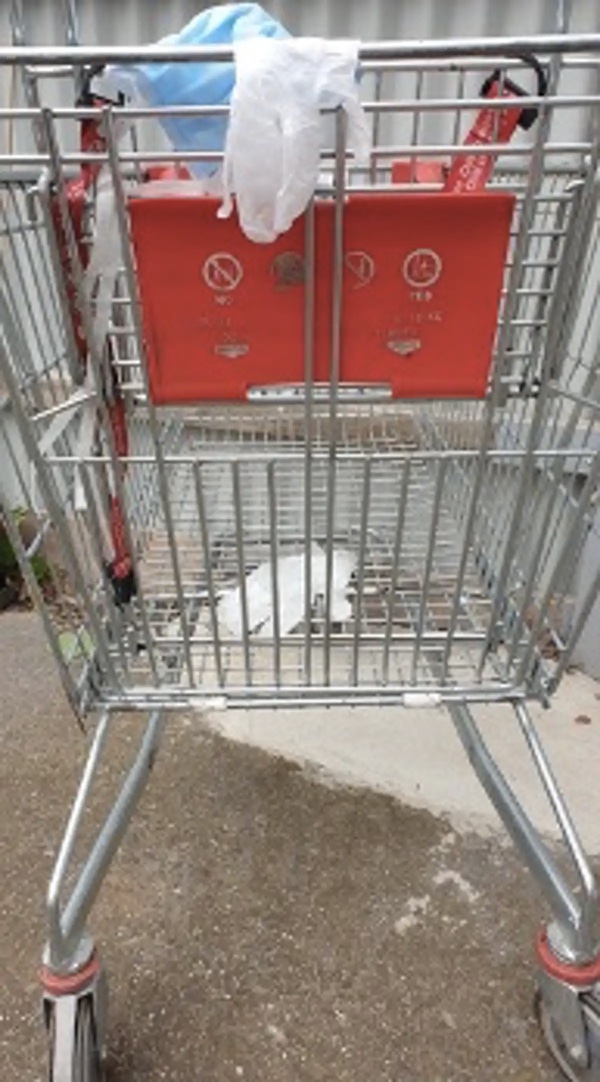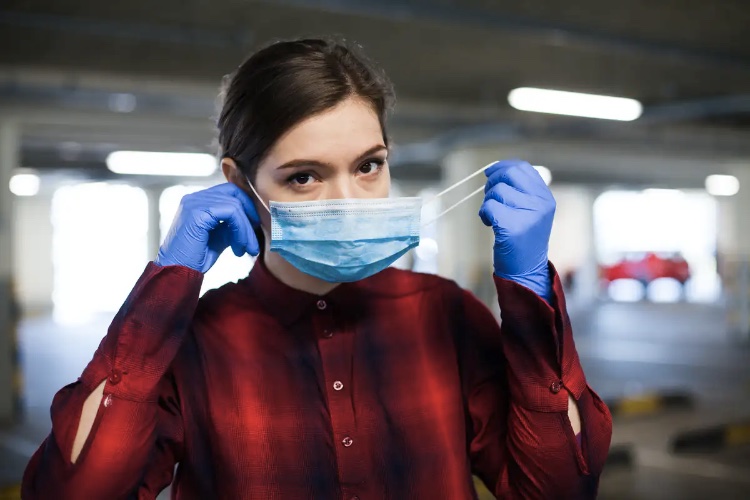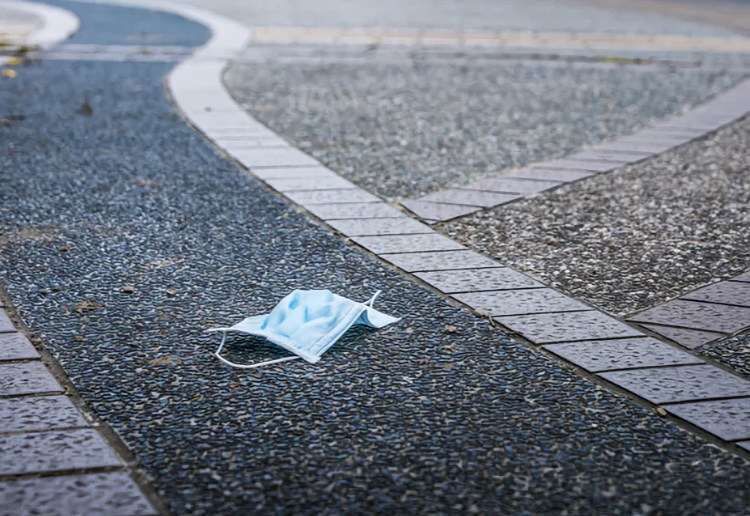Single-use disposable masks could be a coronavirus hazard if we don’t dispose of them properly.
From 11.59pm on Wednesday, it will become mandatory for anyone in Melbourne and Mitchell Shire leaving their homes to wear a mask. Many people have already been wearing masks for some time in a bid to protect themselves and others from COVID-19.
Evidence has shown masks likely do reduce the spread of COVID-19, so wearing them is a good thing – particularly as Victoria continues to grapple with a second wave.
But one conversation we’re not having enough is the hidden danger of disposable masks and this revolves around how to safely dispose of single-use masks. Disposing of used masks or gloves incorrectly could risk spreading the infection they’re designed to protect against.
Read more:
Victorians, and anyone else at risk, should now be wearing face masks. Here’s how to make one
A convenient choice
While reusable cloth masks are an option if you’ve been able to buy one or even make one yourself, disposable, single-use surgical masks appear to be a popular choice. They provide protection and they’re cheap and convenient.
It’s estimated the global use and disposal of masks and gloves will amount to 129 billion face masks and 65 billion plastic gloves for every month of the COVID-19 pandemic.
The effect on the environment is an important but separate issue to the health risks we’re discussing here.
Alarmingly, from what we’ve observed, people are discarding masks in communal rubbish bins and even leaving them in empty shopping trolleys.
Don’t leave disposable masks lying around
People should know better than to leave used masks lying around. But they can’t be expected not to discard them in public bins when there’s no other option, and when they’re not given any advice on how to dispose of them properly.
Importantly, while there are clear guidelines on the disposal and separation of medical waste within health-care settings, guidelines for disposal of surgical masks in public settings are unclear.
The Victorian government simply advises they be disposed of “responsibly in the rubbish bin“, meaning they will be mixed with ordinary waste. This is in contrast to personal protective equipment (PPE) used in health-care settings, which is disposed of separately to regular waste, transported to sealed landfill, and in some cases incinerated.
Read more:
Which face mask should I wear?

Why could this be a danger?
We don’t yet know a whole lot about the survival of SARS-CoV-2, the coronavirus that causes COVID-19, on textile materials.
One study published in the medical journal The Lancet found no infectious SARS-CoV-2 could be detected on textile materials after 48 hours.
A review study which looked at the survival of a range of pathogens on textiles found viruses could survive longer than 48 hours, though not as long as bacteria.
Although we need more research on this topic, it seems there is potential for cross-contamination, and therefore possibly COVID-19 infection, from disposed masks.
In all likelihood, other people, such as supermarket staff collecting trolleys, or waste handlers, will come into contact with discarded masks well within that 48 hour window.
In addition, if the discarded disposable mask is carrying infectious particles, it may be possible for these to cross-contaminate the surfaces they come into contact with, such as shopping trolleys. And we know SARS-CoV-2 survives more readily on hard surfaces than porous ones, so this is a worry.
Read more:
Are you wearing gloves or a mask to the shops? You might be doing it wrong

Who needs to act?
This issue is a potential biosecurity concern, and we need segregation of used masks from ordinary waste immediately. We urge attention from the Victorian government and local councils to act on this issue, including in the following ways:
- create general awareness of this problem, potentially by including messaging around how to properly dispose of masks in directives on their use
- install pop-up secured bins in public places such as shopping centres for used masks and gloves
- workers collecting the waste should follow biohazard protocols similar to those used to manage waste collected from health-care settings.
What you can do?
In the first instance, please don’t leave your used masks and gloves in a shopping trolley, or lying around anywhere else.
The safest thing to do is to put used masks and gloves into a plastic bag when you take them off, and seal it. Then, when you’re back at home, throw the bag away into a closed bin.
Hopefully we will have further directions on how to dispose of these items soon.
What about NSW residents?
The NSW government has not yet mandated the wearing of masks in public despite the growth of COVID-19 cases.
Premier Gladys Berejiklian said she would not yet follow Victoria’s lead by enforcing mask use in public but urged that people wear masks where social distancing was not possible.
“What NSW Health and myself are worried about most at this moment in time is what people are doing when they’re entering hospitality venues … you can’t wear a mask when you’re having a meal,” Ms Berejiklian told 2GB radio.
The NSW Rail, Tram and Bus Union has called on the NSW government to provide all public transport workers with masks if they requested it and encourage mask-wearing on public transport.
Read more:
Is the airborne route a major source of coronavirus transmission?
Saniyat Islam, Lecturer, Fashion Entrepreneurship, RMIT University and Kate Kennedy, Lecturer, School of Fashion and Textiles, RMIT University
This article is republished from The Conversation under a Creative Commons license. Read the original article.




















1:04 pm
4:47 pm
9:49 am
5:13 pm
10:49 pm
4:18 pm
10:14 pm
9:19 pm
8:42 pm
12:05 pm
11:11 am
-

-
-
bramblehedge replied
- 23 Jul 2020 , 11:17 am
Reply8:49 am
-

-
-
mom80165 replied
- 23 Jul 2020 , 4:41 pm
Reply2:54 am
9:36 pm
-

-
-
Ellen replied
- 23 Jul 2020 , 7:51 am

Reply7:25 pm
5:09 am
11:13 pm
-

-
-
Ellen replied
- 22 Jul 2020 , 4:23 am

Reply9:58 pm
-

-
-
Ellen replied
- 22 Jul 2020 , 4:20 am

Reply9:21 pm
8:12 pm
-

-
-
mom93821 replied
- 22 Jul 2020 , 4:37 am
Reply- 1
- 2
- »
Post a commentTo post a review/comment please join us or login so we can allocate your points.